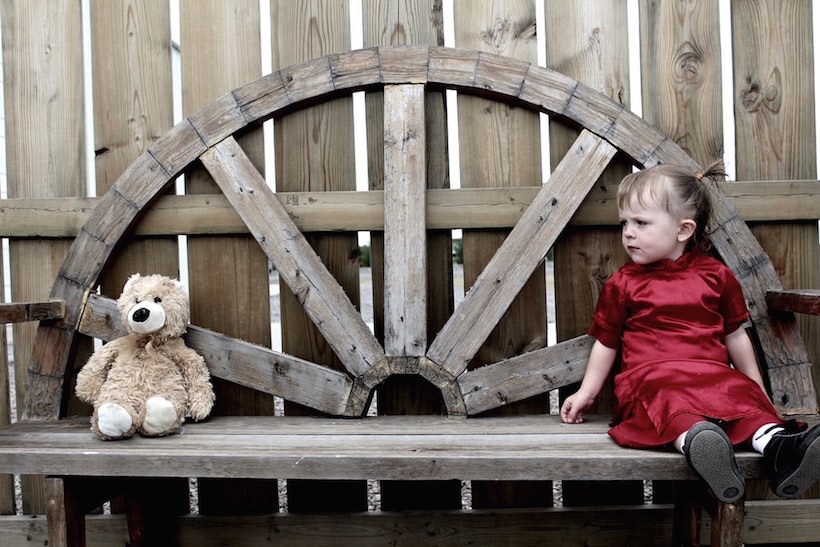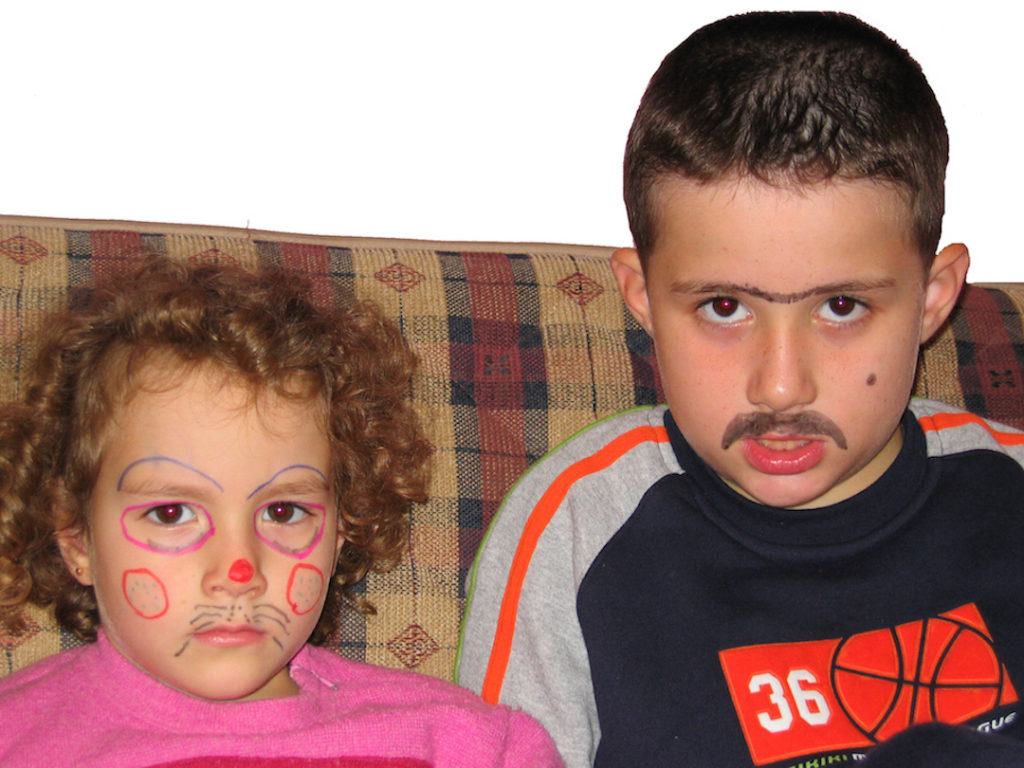
“Just Take Your Sword and Cut the Monster’s Head Off” and Other Ways to Conquer Bedtime Fears
One of my favorite quotes on child psychology comes from psychoanalyst Christopher Bollas:
“To be a child is to endure a prolonged situation in which the human mind is more complex than the self can ordinarily bear. Our minds--in themselves--produce contents that will be overwhelming. To be successfully normal, then, we rather have to dumb ourselves down.” (New York Times)
True, it’s not the most inspirational or uplifting of quotes, but it does begin to explain so many of the daily quandaries that parents face with their little ones. Why does your kid act like a turd? Because his mind is probably overwhelmed. Why does he always throw a fit when it’s time to leave? Because his mind is probably overwhelmed. And why is he so afraid of monsters, especially at bedtime? Well, you get the idea. It’s this last issue that we’re going to tackle today. Fear of monsters and their brethren (e.g., animals, ghosts, robbers, etc.) is common in children even when parents are thoughtful about what kind of media their kids consume. Although Bollas provides a foundation for addressing this fear, we need to go further in understanding the purpose and power of these archetypes in the mind of the child.
Why Are Children Afraid of Monsters?
There are many ways of understanding young children’s inordinate fears of monsters. From an evolutionary perspective, this fear may be adaptive because it activates the child’s safety-seeking behaviors (e.g, crying and getting close parents). The fact that beasts seem to appear most frequently at night or other sleep times furthers the argument because these are the times when humans are particularly vulnerable to predators.
“'The monster is the bad one, not me and not you,' the child seems to communicate through her fantasy. In her mind, fearing creatures allows her to protect her love for her parents as well as their love for her."
Selma Fraiberg, the grandmother of the field of infant mental health, gives another explanation. For her, children’s fears are rooted in their relationships with their parents. “Wow! A psychoanalyst thinks our fears come from our mothers. Who would have guessed?” (says everyone sarcastically). Let me explain. As the child strengthens her independent sense of self in the second year, her emotional life gets richer. She is more able to express jealousy towards her parents’ relationship, for example. She is more able to express anger towards them as well. This should come as no surprise to parents of toddlers and preschoolers, who are known for their defiance and emotionality. But this anger may have invisible costs. Children may develop a fear of their own anger towards their parents. Being afraid of monsters helps to solve this problem by locating the child’s anger and the accompanying sense of danger outside of herself. “The monster is the bad one, not me and not you,” the child seems to communicate through her fantasy. In her mind, fearing creatures allows her to protect her love for her parents as well as their love for her.
On the flip side, parents sometimes do bear resemblance to monsters. After all, when they’re mad, parents are snarling, bassy giants from the vantage point of the young child. These moments are overwhelming for most children. The last person they want to be mad at them is their parent. It can feel quite disturbing to have intense angry feelings sitting alongside loving dependency. In this way, too, monsters seem to provide a little help because they allow the child to be angry at someone that they don’t also have to love.
Want More Help with Your Child?
Enroll Now in a Free Online Course on Parenting Tough Toddlers!
Help Them Slay the Monsters
Now that we see these early fears as a kind of imperfect solution to preserve the child-parent relationship, we can look with open eyes at options for helping the child. In The Magic Years, her seminal book on the psychological life of the young child, Fraiberg recommends two basic strategies: Doing some detective work and providing reassurance to the child. When a child begins to show fear of monsters parents can think back to any recent precipitating events, something that may have caused the child to have to move the anger and fear out of her consciousness and into a monster. Parents yelling at the child or even at each other might provide just enough electricity to animate Frankenstein. If the parents find success in their investigation, then they have a better chance of quickly offering accurate reassurance to the child. Reassurance might sound something like, “You heard me and your daddy yelling yesterday, and I think it scared you to see us so mad. I’m sorry that we scared you. We weren’t mad at you. We still love you and each other.”
Another form of reassurance familiar to parents is insisting on reality, which often sounds like, “There’s nothing to worry about, darlin’. I promise you, there’s no such thing as monsters. Just go to sleep.” For many occasions, this is sufficient, in part, because the child feels the strength of the parent’s conviction that nothing actually lurks beneath the bed. Sometimes the child can borrow this strength and summon the courage to drift off to sleep. The child may think, “When you feel strong, that makes me feel strong, mommy.”
Other times, children are too beholden to their powerful imaginations to latch on to their parents’ objective reality. In these moments, parents can channel their inner trickster and say, “Screw it. Let’s beat up these monsters!” Imagine a mom reassuring her frightened 3-year-old by giving him a toy sword and telling him to use it if the monster shows up. If that weren't enough, mom could help him decapitate a few zombies before she kisses him goodnight. Other children might feel safe when dad just gives the monster a stern talking to and banishes him from the bedroom, only allowing him back in the daylight if the child says so. These ideas and their many cousins all involve entering the fantasy, which will eventually die out along with the fear.
"Other times, children are too beholden to their powerful imaginations to latch on to their parents’ objective reality. In these moments, parents can channel their inner trickster and say, 'Screw it. Let’s beat up these monsters!'"
Two other options include keeping physical contact with the child ("It's okay. I'll stay with you.") and distracting him altogether (“You can sing or talk to yourself about what you did today until your body is ready to sleep.”). Different parents will tell you different things about what works for them. With the little ones, however, I especially like entering the fantasy because it uses the language of children--imagination--to overcome fears, an early lesson in using the mind to self-regulate potent emotions. I think it tends to be a more reliable way to lend the child the parents’ strength when compared to insisting on reality. It also may provide an indirect form of repair between child and parent if there has been some distress between the two.
Of course, these strategies are most effective when parents are able to provide a basically safe and secure existence for the child. Although they may seem quotidian, things like regular bedtimes and child-parent playtime strengthen the child’s mind by “dumbing down” the many overwhelming aspects of reality.


